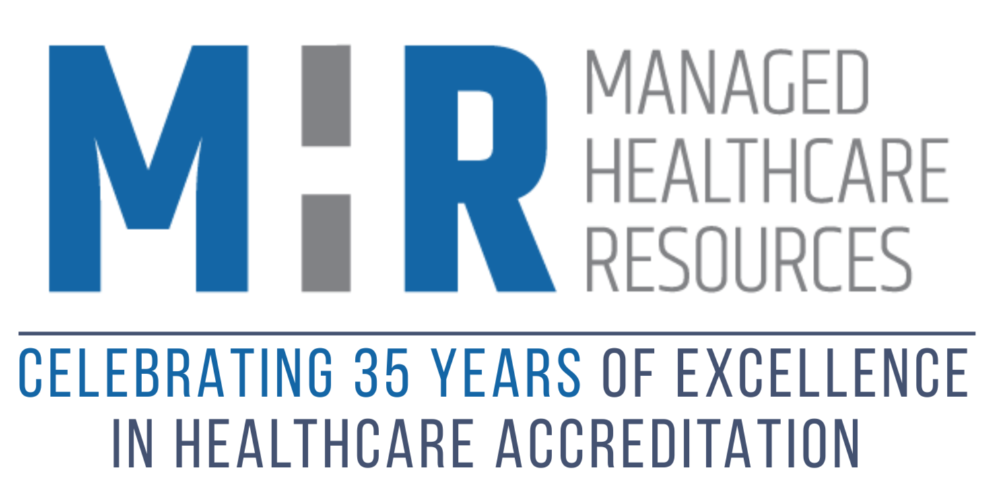Health Plan Accreditation (HPA) is the original NCQA accreditation product from which all others have derived and grown to support this accreditation. NCQA’s Report Cards site lists over 1,200 plans that have NCQA accreditation, representing all US states and territories. MHR’s consultants have significant expertise in HPA for all types of Plans and Products, including:
|
PLANS
|
PRODUCTS
|
|
Commercial
|
Exclusive Provider Organization (EPO)
|
|
Exchange
|
Health Maintenance Organization (HMO)
|
|
Medicaid
|
Point-of-Service (POS)
|
|
Medicare
|
Preferred Provider Organization (PPO)
|
NCQA offers a glide path to accreditation, starting with an Interim Survey. Interim is a subset of the entire Health Plan standards without more rigorous look-back periods for meeting the requirements. Interim accreditation helps organizations meet state regulations that require accreditation, typically for the Medicaid line of business. Interim also allows health plans new to NCQA accreditation to slowly ramp up to achieving HPA. Health plans can only be surveyed at the Interim level once. If health plans do not pass their Interim survey, they can re-apply in a year, but only at the next level, which is the First Survey.
First Surveys occur 18 months after the Interim survey or organizations may choose to enter the accreditation path with a First Survey. With the First Survey, all the Health Plan standards except for remeasurement must be met, with a look-back period of six months. First Surveys are a significant step, as health plans must have documentation for all standards and implement outcomes measurement and analysis beyond HEDIS measures. However, HEDIS is not required to be submitted until the year after the Interim or First Survey accreditation status is effective.
Note that First Surveys can be the second step in HPA or could be the initial foray into accreditation; NCQA allows either. MHR has found through consulting and conducting NCQA surveys that some plans have major struggles in reaching First Survey requirements, particularly if they have not systematized processes or have fallen behind on requirements needed for the six-month lookback period.
Many health plans find that Interim Survey preparation does help staff get acclimated to NCQA requirements and become more purposeful and formalized before meeting the First Survey requirements.
Last on the glide path towards HPA is the Renewal Survey, which is scheduled three years after the prior First Survey. For the Renewal Survey, the requirements are more rigorous. Documented processes must be in place for the entire 24-month look-back period, many materials must be in place throughout the look-back period, and annual reports must have two annual requirements separated by 12 –14 months. This means that processes must be systematized to meet the standard's intent and occur at regular intervals. Denial, appeal, and case management files have a one-year look-back period. However, the credentialing and recredentialing process is ongoing and needs to be constantly monitored by health plans to assure that these must-pass requirements are met even with staff turnover.
Organizations can incur many challenges on the glide path towards HPA. MHR’s expert consultants work with you proactively to help you achieve success and help prevent corrective action plans (CAPs). See more detail on How We Work.
But it doesn’t stop there. MHR recognizes that other challenges arise, such as losing seasoned staff, gaining new team members without experience in NCQA, and lack of support by individuals, executives, or key departments. Any of these challenges can result in missed requirements, not meeting the look-back periods, and low morale.
MHR consultants have worked with many organizations new to accreditation. They know that many do not have sufficient documentation when the consulting period begins but must develop the documentation as they go. However, MHR’s philosophy is to have clients build their own documentation and then have MHR review those documents; at times, clients do not have the skills or experience to develop them independently. Occasionally, our consultants are asked to model the necessary documentation once to replicate it for future documentation needs.
To help organizations align the format and consistency of their qualitative and quantitative analyses throughout their organization, MHR offers for purchase templates to write their analysis documents. These templates are particularly helpful in areas responsible for quality improvement, network management, credentialing, utilization management, case management, population health management, and member experience.
Lastly, organizations may purchase training sessions, which are presented by MHR consultants who have hands-on experience and their fingers on the pulse with NCQA updates.
Depending upon the knowledge and skill levels of the organization’s staff, management, and executive team who are pursuing HPA, some training sessions that may be helpful are:
- Analysis
- Annual Standard Changes
- Appeals
- Basics of NCQA Accreditation
- Complex Case Management
- Delegation
- Denials
- Health Equity
- Member Experience
- Network Management





